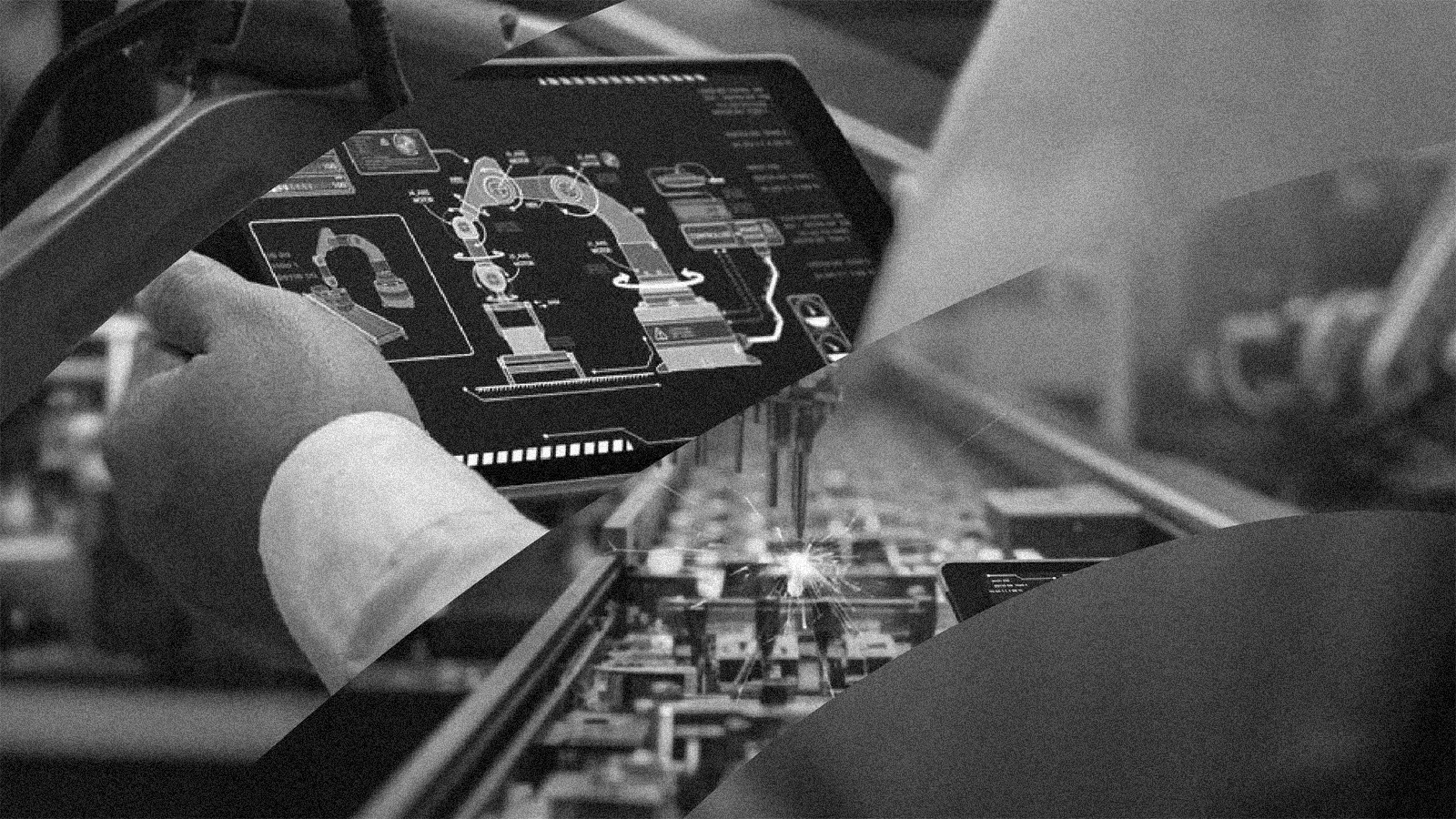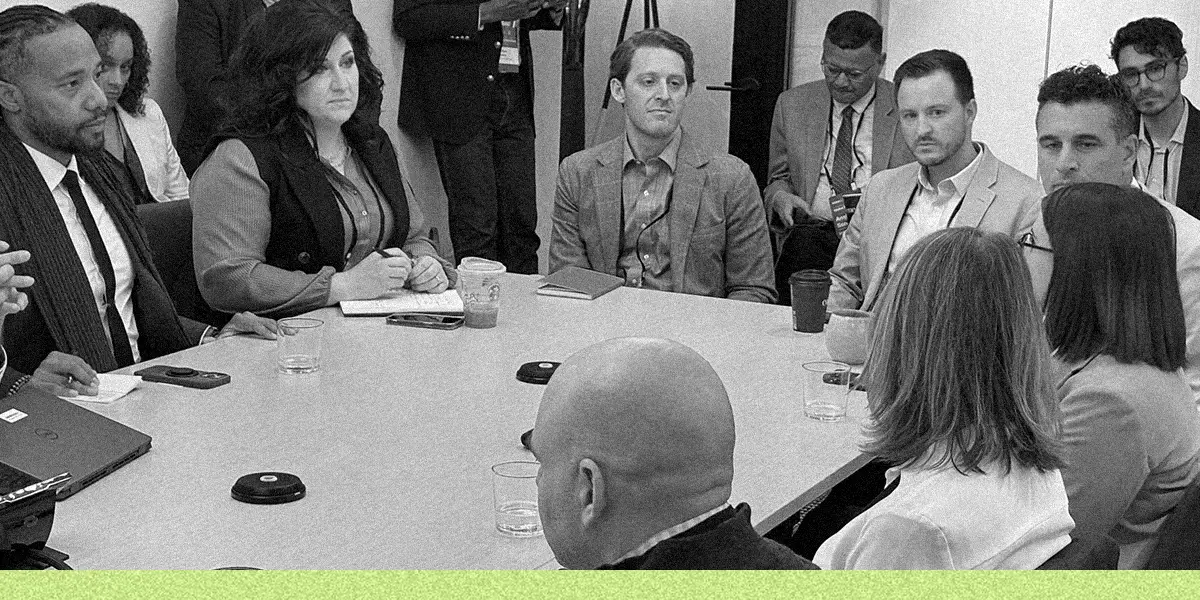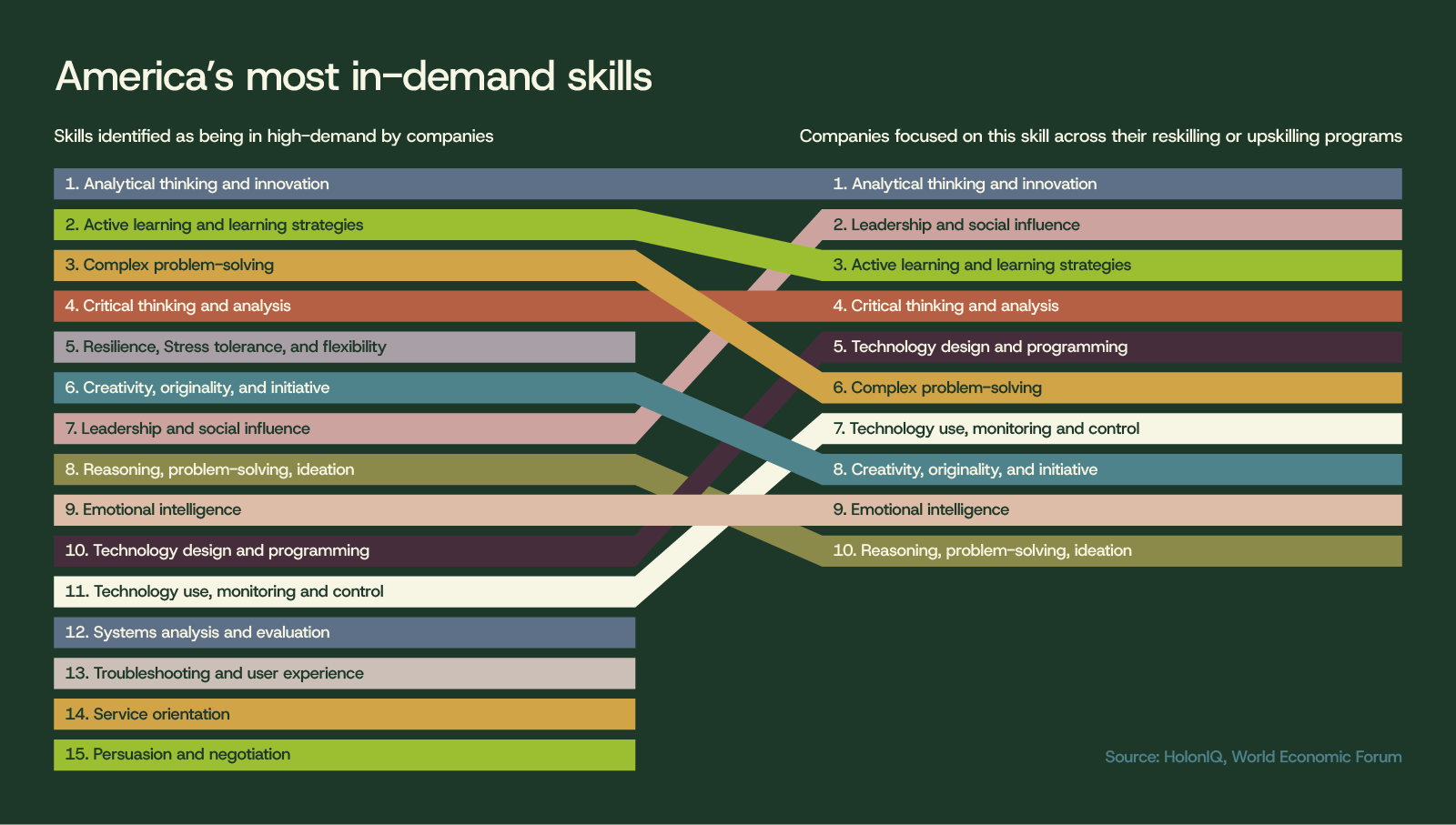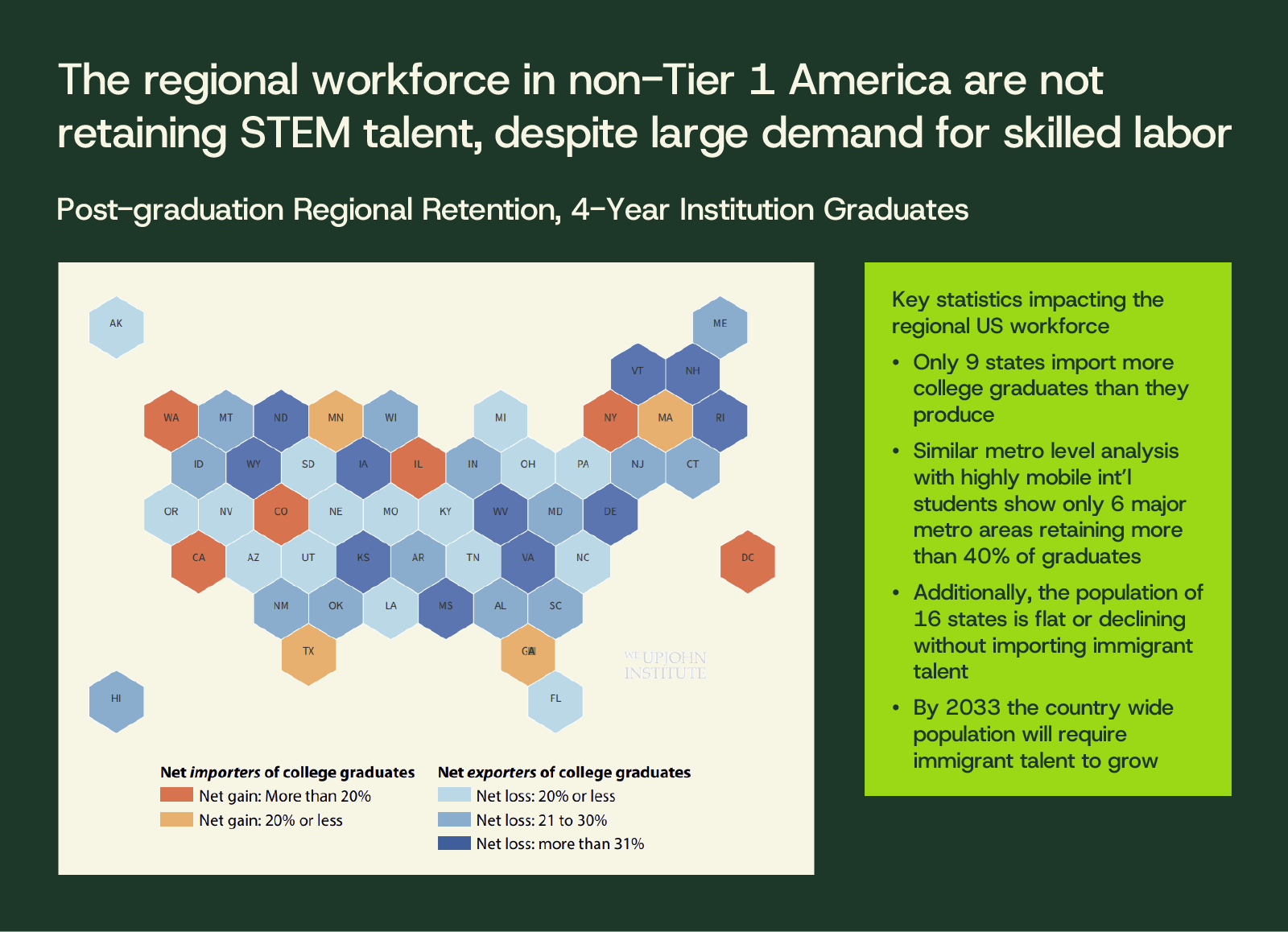
Jun 26, 2025

At HolonIQ’s Global Skills Week 2025, the future of American manufacturing was a recurring theme, in part due to the conversations facilitated during the Advanced Manufacturing Skills Leadership Council.
Co-hosted and hand-selected by inSpring, the Advanced Manufacturing Skills Leadership Council is an exclusive group of global leaders and experts in advanced manufacturing skills formed to address some of the world’s most pressing global challenges in upskilling and reskilling.

Host to economic development leaders, industry pioneers, and workforce development stakeholders, this council will meet in person quarterly to explore the future of workforce readiness in manufacturing.
Deon Gordon
TechBirmingham, President + CEO
Michael Dean
SVP and CIO, ProEnergyTellurian Inc., VP Information Technology
Janisha Thomas
The Ritedose Corporation, Chief HR Officer
Joanna Mikulski
Fellow, Future of Work and the Innovation Economy, New America, Former White House Senior Policy Advisor
Spencer Lucker
Michigan Economic Development Corporation, Director of Strategic Talent Initiatives
Abby Conyers
JFFVentures, Director Platforms + Partnerships
Josh Copus
Jobs for the Future (JFF), Senior Director
Patrick Hosford
Greater Baltimore Committee
Emily Jerkins
Bloom Economy Labs, Founding Principal
Rick Oppedisano
Delta Bravo AI, Founder + CEO
Juliana Guaqueta
IFC World Bank, Edtech Lead
Alejandro Caballero
IFC World Bank, Principal Education Specialist
Shamim Kazemi
IFC World Bank
Darby Westfall
Leapfrog Systems
Andrew Hanson
Strada Education
Holly Custard
Strada Education
Angela Hernandez
Western Governors University, Senior Lead Skills Architect
Nicole Amaral
Senior Manager, Coursera
Rya Conrad-Bradshaw
SVP, GM, ed2go and Ready to Hire, Cengage Group
Megan McInroy
Director, Ready to Hire, Cengage Group
Shakir Cannon-Moye
Julius
Aaqib Alvi
Sustainable Living Lab
Kerri Kraft
North Dakota Department of Commerce, Workforce Division
Sector Transformation
Discussions highlighted how robotics, AI, and smart systems are rapidly transforming the sector, requiring a modernized talent pipeline.
Key Barriers
Participants noted challenges such as aging infrastructure, educator shortages, and misalignment between training and emerging technologies.
Equity and Access
Emphasis was placed on ensuring rural, Indigenous, and underrepresented populations are included in the manufacturing workforce.
Strategic Imperatives
Success requires place-based innovation, strong employer partnerships, long-term investment, and supportive public policy.
National Implications
Talent development is central to industrial competitiveness, and the Council called for coordination to scale regional solutions nationally.
Manufacturing is transforming, and so are its workforce needs. Today’s employers are prioritizing hands-on experience and digital fluency, and traditional talent pipelines just can’t keep up.
With the sector’s rapid shift driven by robotics, AI, and smart systems, jobs and growth here in the US are critical to maintaining global leadership and securing strength and prosperity.
As the world experiences a digital transformation, particularly with AI and robotics, employers are focusing on reskilling and upskilling their workforce. HolonIQ’s research reveals that the most sought-after skills are shifting, underscoring the need for soft skills like innovative thinking and continuous learning, reflecting the collaborative and evolving nature of today's industrial environments.
This aligns directly with industry demands: companies need people who can not only perform the core components of their roles but also collaborate across teams, lead with confidence, and navigate complex systems.

A key trend our experts have seen in recent years is the states’ inequality of net gain vs. net loss of college graduates. Despite high demand for skilled labor, most non–Tier 1 American cities are struggling to retain their STEM graduates, resulting in a costly “brain drain” for rural and mid-sized regions.
Only nine states import more college graduates than they produce, and most metro areas retain fewer than 40% of their international students post-graduation, a critical source of STEM talent. As local populations flatten or decline, currently true for 16 states, the pressure to import talent grows. Without stronger retention strategies and global talent pipelines, many regions risk falling behind.

At Global Skills Week, the conversation around AI shifted toward something broader and more human. For Emily Jenkins, founder of Bloom Economy Labs and a longtime economic developer in Alabama, it’s not about displacement but adaptation.
“Jobs that were once purely manual or mechanical now require workers who can interpret data, collaborate with AI systems, and make informed decisions based on real-time information,” she shared.
Digital transformation is already reshaping global manufacturing, with major companies embedding data into daily operations. This evolution demands a workforce that’s not only technically skilled but agile, collaborative, and confident navigating data-driven systems.
Council panelists emphasized that digital fluency is essential, starting with early exposure to AI and automation, even in K–12 education. Jenkins noted that today’s tools can decode qualitative insights, helping companies anticipate training needs and close skills gaps before they grow.
“Amid rapid technological change, we must anchor ourselves in timeless fundamentals while keeping our humanity central to how we organize the next economy,” Emily said. “It’s incumbent upon us to use these tools to amplify our core competencies and strengthen human connections rather than replace them. Technology should serve our communities, not the other way around.”
The takeaway: companies using digital transformation to elevate human potential are leading the next era of manufacturing—and it starts with attracting, skilling and retaining the next-gen digitally-enabled workforce.
inSpring works to solve the skills gap at the regional level, so it’s no surprise that we asked Tim VanReken, Executive Director of the Headwaters Tech Hub in Montana, to present their strategic vision and implementation efforts as a case study for building regional ecosystems.
At Global Skills Week, Tim shared how his team is tackling the challenge of building a skilled workforce in a largely rural, small-manufacturer-driven region. Traditional, urban-centered workforce strategies often don’t scale in places like Montana. In response, HTH is crafting a region-specific approach, adapting proven models where possible and innovating new ones where needed.
“I am often surprised at how deeply our conceptual models for how workforce strategies work and scale are rooted in concentrations of people and jobs that are inherently urban-leaning. It creates blind spots in our assumptions of cost, pipeline size, and so on. If we want these strategies to be available for everyone, there needs to be more work to find strategies and adjust assumption to account for rural populations.”
Though still in development, the HTH model is already gaining attention as a potential roadmap for other emerging tech hubs navigating similar challenges.
The first gathering of the Advanced Manufacturing Skills Leadership Council made one thing clear: regional innovation and workforce sustainability are national imperatives. From talent retention and hands-on learning models to the integration of AI and data, the future of advanced manufacturing depends on place-based strategies backed by strong partnerships.
As the sector evolves, it’s more than just filling roles. It’s about building systems that adapt, endure, and include wider populations. The Council is helping set the standard for how cross-sector collaboration can translate insight into action and spark real, long-term change in American manufacturing.
inSpring’s approach mirrors the future-forward strategies shared at Global Skills Week, specifically employer-driven, data-backed, and talent-first. Through our Regional Talent Hubs and global STEM pipelines, we’re not just talking about tomorrow’s manufacturing workforce, we’re building it.
To learn more about inSpring’s approach to building scalable programs and strategies to train and retain specialized talent for advanced manufacturing, visit our Advanced Manufacturing page here.
Attend the 24th Annual “Back to School’ Summit
Next Advanced Manufacturing Skills Leadership Council